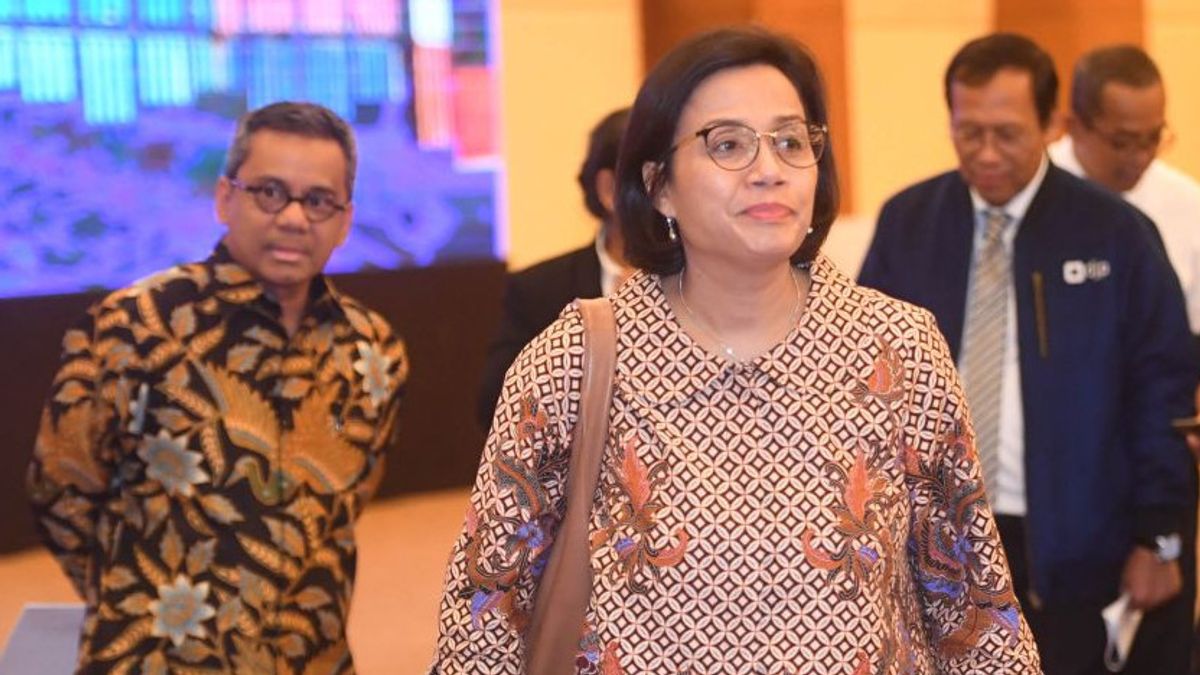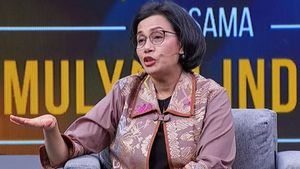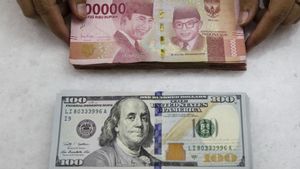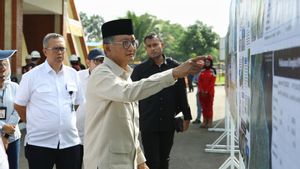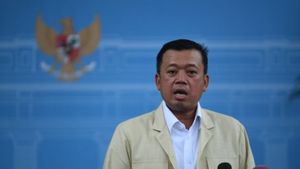Minister of Finance Sri Mulyani Indrawati specifically advised the DPR's Budget Agency (Banggar) to be able to reform the reference for state mandatory spending or mandatory spending for the education budget of 20 percent.
For information, the provision for allocating a budget for the education sector of 20 percent is the mandate of Law Number 20 of 2023 concerning the National Education System (UU Sisdiknas).
As for article 49 of the Sisdiknas Law, it is explained that education funds, in addition to educator salaries and official education costs, are allocated at least 20 percent of the State Revenue and Expenditure Budget (APBN) in the education sector and at least 20 percent of the Regional Revenue and Expenditure Budget (APBD).
According to Sri Mulyani, the mandatory expenditure base for the education sector is 20 percent of the state budget so far, because it does not take into account the real condition of state spending. As a result, when the need for state spending is high, due to the weakening of the exchange rate or the increase in oil prices, mandatory spending must still be carried out.
"If we look at the episodes of previous years, sometimes spending has gone up very high, so the education budget should increase, but the increase from spending, such as if the increase in subsidies in 2022 is not due to an increase, we get a lot of money or a big income and then we use the spending for subsidies, but because the price of oil at that time has increased, the exchange rate has decreased, so subsidy spending has soared very high," said Sri Mulyani in a meeting with Banggar DPR, Wednesday, September 4.
Sri Mulyani gave an example in 2022 where state spending experienced an increase due to the increase in world crude oil prices and the weakening of the rupiah, so that the subsidy burden rose to Rp550 trillion compared to the initial design of Rp350 trillion. Where the increase must be compensated for from education spending of 20 percent.
"The increase of up to Rp200 trillion has consequences for having to be 20 percent of the education budget. Now this is what makes it difficult to manage state finances in the sense that the state budget is maintained, the deficit remains below 3 percent, the state budget is maintained sustainable, but we still maintain compliance with 20 percent of the education budget," he said.
Therefore, Sri Mulyani said, the realization of the education budget is sometimes under the mandatory spending provisions.
So that his party has discussed the importance of changing the basis of education calculations by 20 percent, not from state expenditures but from state revenues.
"So we have discussed it at the Ministry of Finance, the way to manage the APBN remains comply or compliant with the constitution where 20 percent of our income should be for education. But if 20 percent of spending, in spending there is a lot of uncertainty, the education budget becomes funny, so it goes up and down. I also understand that there are a lot of people who question what the allocation of the education budget is, "he said.
According to Sri Mulyani, this change is very important so that the Minister of Finance can maneuver in maintaining the state budget by staying transparent and in accordance with the governance regulated by the law, while maintaining the country's financial health in anticipating economic turmoil due to global and domestic.
"Well, we need transparency, but at the same time the minister of finance, the state treasurer must have room for maneuvers because the state budget is set for today, next week alone, that's an assumption of moving, it's impossible for everything to be locked and not move, it will definitely crack. So how can the next finance minister still have room to maneuver but remain transparent and still obey the constitution," he said.
Sri Mulyani explained that the practice that has occurred in budget management so far uses a mandatory spending budget that is actually included in the above-the-line structure category, namely as an educational budget reserve as a cushion for the state budget (APBN).
"This is what I think we need to discuss regarding the definition of the education budget, especially sources to calculate the 20 percent. We will propose that the state treasurer in the future maintains a sustainable, credible APBN, but also meets development needs and remains obedient to the constitution., This is what we propose later for the length of the APBN legislation, we will also convey it," he said.
SEE ALSO:
On the same occasion, the Chairman of the Banggar DPR Said Abdullah responded well to the request where the DPR Banggar would send a letter to reformulate the mandatory spending provisions to the leadership of the DPR, so that this matter could be discussed in the legislative body.
"Later, we will take a role to write to the DPR, so that the DPR will proceed to the Legislative Council to revise the education law. Because we have obtained various items from the expertise of the DPR, including Official Schools, Education Training and so on, Police Academy, Military Academy, that should be part of the education budget," he said.
The English, Chinese, Japanese, Arabic, and French versions are automatically generated by the AI. So there may still be inaccuracies in translating, please always see Indonesian as our main language. (system supported by DigitalSiber.id)
